The inspiring and thought-provoking films from the Why Poverty? season are now available to watch here on WorldView, and its sister project, Your WorldView. We have been a proud partner and supporter of the global Why Poverty? initiative from the outset.
The project’s eight long-form documentaries from award-winning filmmakers and 33 shorts from emerging talents were shown around the world in November 2012 by more than 70 broadcasters. All content is now free and available to watch online, and WorldView is proud to showcase the feature docs here. You can view the 33 short films at Your WorldView.
Watch the eight documentaries here – join the debate and ask ‘Why?’
Welcome to the World
 130 million babies are born each year, and not one of them decides where they’ll be born or how they’ll live. In Cambodia, you’re likely to be born to a family living on less than $1 a day. In Sierra Leone chances of surviving the first year are half those of the worldwide average. Brian Hill takes a worldwide trip to meet the newest generation. In the US Starr’s new baby could well be one more of 1.6 million homeless children now living in the streets. Watch the film >>
130 million babies are born each year, and not one of them decides where they’ll be born or how they’ll live. In Cambodia, you’re likely to be born to a family living on less than $1 a day. In Sierra Leone chances of surviving the first year are half those of the worldwide average. Brian Hill takes a worldwide trip to meet the newest generation. In the US Starr’s new baby could well be one more of 1.6 million homeless children now living in the streets. Watch the film >>
Give us the Money
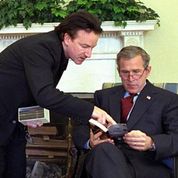 From Live Aid to Make Poverty History, celebrities have become activists against poverty. Bob Geldof and Bono have been the most prominent voices advocating on behalf of the poor. But have their concerts and campaigns really lifted millions out of poverty? Geldof, Bono and Bill Gates speak candidly about how to lobby effectively and how to play to politicians’ weaknesses for glitz and popularity. Watch the film >>
From Live Aid to Make Poverty History, celebrities have become activists against poverty. Bob Geldof and Bono have been the most prominent voices advocating on behalf of the poor. But have their concerts and campaigns really lifted millions out of poverty? Geldof, Bono and Bill Gates speak candidly about how to lobby effectively and how to play to politicians’ weaknesses for glitz and popularity. Watch the film >>
Stealing Africa
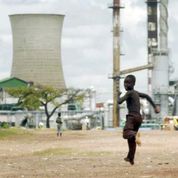 Rüschlikon is a village in Switzerland with a very low tax rate and very wealthy residents. But it receives more tax revenue than it can use. This is largely thanks to one resident – Ivan Glasenberg, CEO of Glencore, whose copper mines in Zambia are not generating a large bounty tax revenue for the Zambians. Zambia has the third largest copper reserves in the world, but 60% of the population live on less than $1 a day and 80% are unemployed. Based on original research into public documents, the film describes the tax system employed by multinational companies in Africa. Watch the film >>
Rüschlikon is a village in Switzerland with a very low tax rate and very wealthy residents. But it receives more tax revenue than it can use. This is largely thanks to one resident – Ivan Glasenberg, CEO of Glencore, whose copper mines in Zambia are not generating a large bounty tax revenue for the Zambians. Zambia has the third largest copper reserves in the world, but 60% of the population live on less than $1 a day and 80% are unemployed. Based on original research into public documents, the film describes the tax system employed by multinational companies in Africa. Watch the film >>
Solar Mamas
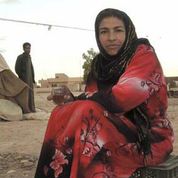 Rafea is the second wife of a Bedouin husband. She is selected to attend the Barefoot College in India that takes uneducated middle-aged women from poor communities and trains them to become solar engineers. The college’s six-month programme brings together women from all over the world, all learning about electrical components and soldering without being able to read, write or understand English. The film follows Rafea as she overcomes difficulties to become a solar engineer, altering her life. Watch the film >>
Rafea is the second wife of a Bedouin husband. She is selected to attend the Barefoot College in India that takes uneducated middle-aged women from poor communities and trains them to become solar engineers. The college’s six-month programme brings together women from all over the world, all learning about electrical components and soldering without being able to read, write or understand English. The film follows Rafea as she overcomes difficulties to become a solar engineer, altering her life. Watch the film >>
Poor Us
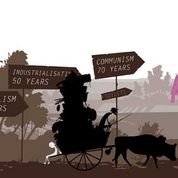 The poor may always have been with us, but attitudes towards them have changed. Beginning in the Neolithic Age, Ben Lewis’s film takes us through the changing world of poverty. You go to sleep, you dream, you become poor through the ages. And when you awake, what can you say about poverty now? There are still very poor people, to be sure, but the new poverty has more to do with inequality… Watch the film >>
The poor may always have been with us, but attitudes towards them have changed. Beginning in the Neolithic Age, Ben Lewis’s film takes us through the changing world of poverty. You go to sleep, you dream, you become poor through the ages. And when you awake, what can you say about poverty now? There are still very poor people, to be sure, but the new poverty has more to do with inequality… Watch the film >>
Land Rush
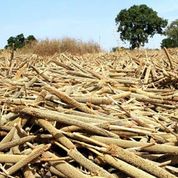 75% of Mali’s population are farmers, but rich, land-hungry nations like China and Saudi Arabia are leasing Mali’s land in order to turn large areas into agribusiness farms. Many Malian peasants do not welcome these efforts, seeing them as yet another manifestation of imperialism. As Mali experiences a military coup, the developers are scared off – but can Mali’s farmers combat food shortages and escape poverty on their own terms? Watch the film >>
75% of Mali’s population are farmers, but rich, land-hungry nations like China and Saudi Arabia are leasing Mali’s land in order to turn large areas into agribusiness farms. Many Malian peasants do not welcome these efforts, seeing them as yet another manifestation of imperialism. As Mali experiences a military coup, the developers are scared off – but can Mali’s farmers combat food shortages and escape poverty on their own terms? Watch the film >>
Education, Education
 In ancient times in China, education was the only way out of poverty – in recent times it has been the best way. China’s economic boom and talk of the merits of hard work have created an expectation that to study is to escape poverty. But these days China’s higher education system only leads to jobs for a few, educating a new generation to unemployment and despair. Watch the film >>
In ancient times in China, education was the only way out of poverty – in recent times it has been the best way. China’s economic boom and talk of the merits of hard work have created an expectation that to study is to escape poverty. But these days China’s higher education system only leads to jobs for a few, educating a new generation to unemployment and despair. Watch the film >>
Park Avenue
 740 Park Ave, New York City, is home to some of the wealthiest Americans. Across the Harlem River, ten minutes to the north, is the other Park Avenue in South Bronx, where more than half the population needs food stamps and children are 20 times more likely to be killed. In the last 30 years, inequality has rocketed in the US – the American Dream only applies to those with money to lobby politicians for friendly bills on Capitol Hill. Watch the film >>
740 Park Ave, New York City, is home to some of the wealthiest Americans. Across the Harlem River, ten minutes to the north, is the other Park Avenue in South Bronx, where more than half the population needs food stamps and children are 20 times more likely to be killed. In the last 30 years, inequality has rocketed in the US – the American Dream only applies to those with money to lobby politicians for friendly bills on Capitol Hill. Watch the film >>